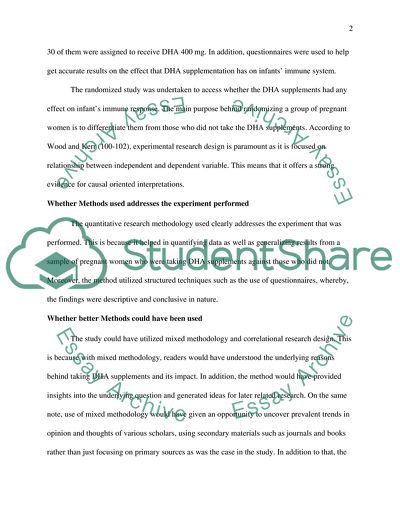Cite this document
(DHA Supplementation during Pregnancy and Lactation Affects Infants Essay, n.d.)
DHA Supplementation during Pregnancy and Lactation Affects Infants Essay. https://studentshare.org/medical-science/1808190-docosahexaenoic-acid-supplementation-during-pregnancy-and-lactation
DHA Supplementation during Pregnancy and Lactation Affects Infants Essay. https://studentshare.org/medical-science/1808190-docosahexaenoic-acid-supplementation-during-pregnancy-and-lactation
(DHA Supplementation During Pregnancy and Lactation Affects Infants Essay)
DHA Supplementation During Pregnancy and Lactation Affects Infants Essay. https://studentshare.org/medical-science/1808190-docosahexaenoic-acid-supplementation-during-pregnancy-and-lactation.
DHA Supplementation During Pregnancy and Lactation Affects Infants Essay. https://studentshare.org/medical-science/1808190-docosahexaenoic-acid-supplementation-during-pregnancy-and-lactation.
“DHA Supplementation During Pregnancy and Lactation Affects Infants Essay”. https://studentshare.org/medical-science/1808190-docosahexaenoic-acid-supplementation-during-pregnancy-and-lactation.


